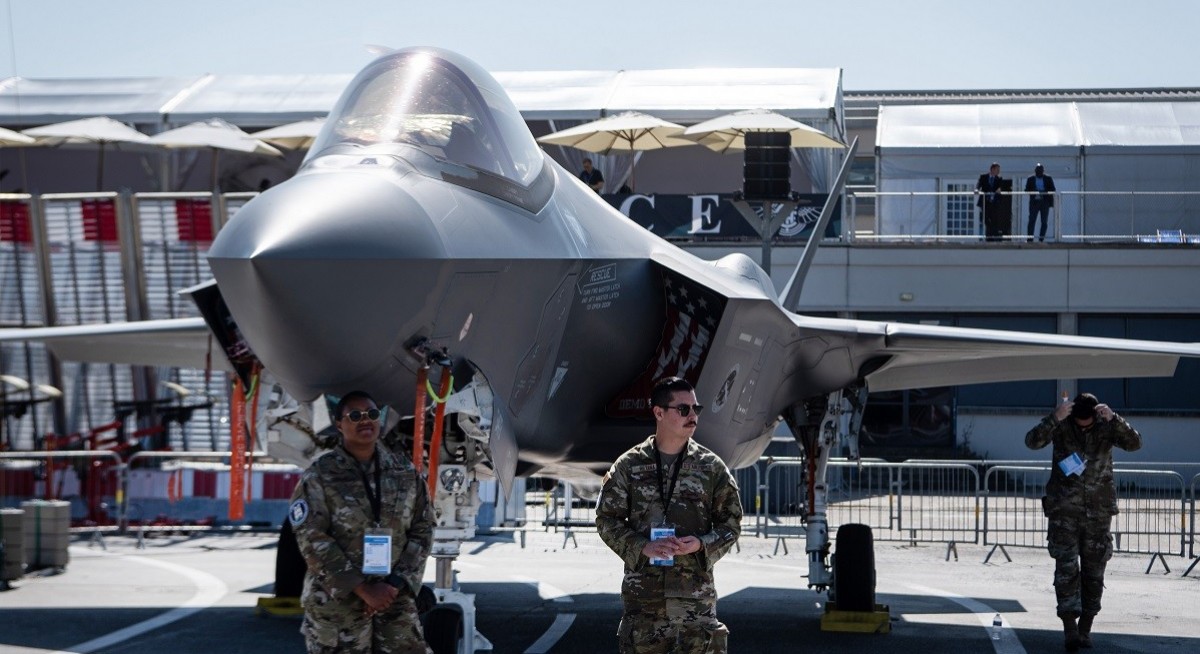The findings on the US$2 trillion program are likely to add fuel to criticism from some of President Donald Trump’s supporters, including billionaire Elon Musk, who argue that the jet is too expensive and becoming obsolete in the age of drone warfare.
The F-35 program office compensated Lockheed Martin with “hundreds of millions of dollars of performance incentive fees while the percentage of aircraft deliveries late and the average days late grew,” according to the GAO report.
“After nearly 20 years of aircraft production the F-35 program continues to overpromise and underdeliver,” the nonpartisan congressional watchdog said.
Among the program’s most glaring shortcomings is continued cost overruns and delays of the “TR-3” software upgrade program, which was initially set to cost US$712 million when it was awarded in 2018. The TR-3 upgrade, meant to allow the jet to carry more precise weapons and gather more information on enemy aircraft and air defenses, is the foundation of an overall capability upgrade called Block 4.
See also: Alphabet set to raise almost US$32 bil debt in intense AI race
The Pentagon is absorbing US$1.14 billion in extra costs on the TR-3 upgrade, which is running three years behind schedule, according to figures from the program office disclosed separately from the GAO report. That’s pushed the overall development cost of the TR-3 to US$1.9 billion.
The Pentagon’s program office said in a statement to Bloomberg that the upgrade program is projected to complete by December or early next year. It declined to outline what sort of financial penalty Lockheed Martin has incurred for the overrun.
Lockheed Martin in a statement didn’t address the overrun but said “the TR-3 computational upgrade that fielded last summer has enabled maturation and fielding of Block 4 capabilities to our warfighters, demonstrated by our recent software release.”
See also: Apple, Google offer app store changes to allay CMA’s concerns
Amid the criticism, the Trump administration is seeking to cut its reliance on the F-35. The proposed budget for the fiscal year beginning Oct 1 requested 47 F-35s, down from a planned 74. Until this action, the Pentagon “continued to seek to purchase more aircraft that have been delivered on time and meet contract specifications,” GAO said.
The GAO disclosed chronic late F-35 deliveries that often “do not fully meet contract specifications” but with the assurance they’ll be corrected later. It said Lockheed Martin has delivered every lot of aircraft since 2018 with what are known as major variance requests, or MVRs — elements that don’t meet proper specifications.
For example, jets were accepted even after Lockheed Martin discovered during testing, inspection, or analysis that some parts were “needing replacement before the required 8,000 flight hours,” cracked or corroded earlier than expected or were “coming loose due to wear and tear on the aircraft; or not functioning as intended,” according to the GAO report.
Although the number of requests “associated with each aircraft is declining over time, Lockheed Martin continues to deliver aircraft with about 40 requests on average since” 2018, the GAO said. “Many have not been fixed and some have remained open for 15 years.”
As of March, 475 of 830 unique MVRs “remain open, all of which the program stated” it has plans “to eventually close,” GAO said.
Program officials told GAO that these “variances are low risk, all have closure plans, and costs are negotiated with Lockheed Martin, but they could not provide data to support these statements,” according to the review.
The F-35 program in June requested more than US$283 million “to correct some aircraft defects and deficiencies associated with MVRs, among other things,” GAO said.




